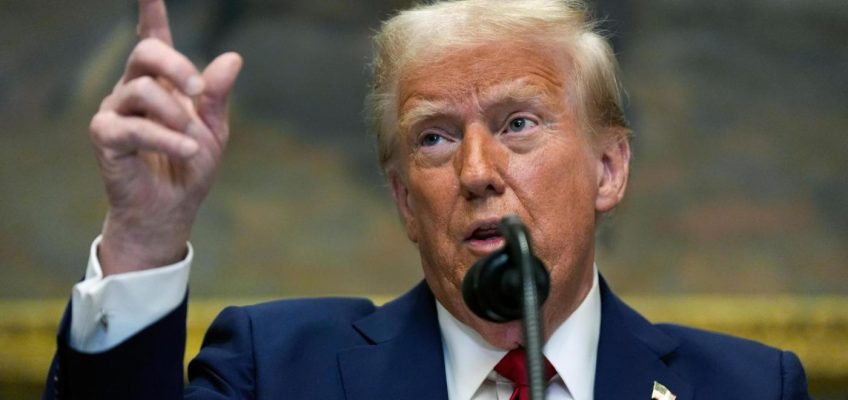By JOSH BOAK, Associated Press
WASHINGTON (AP) — President Donald Trump on Tuesday directed the government to consider possible tariffs on copper, the latest move by the White House to tax a wide array of imports and reshape global trade.
On a call with reporters, White House trade adviser Peter Navarro portrayed the move as an effort to stop China’s build out of its copper sector and to address a broader national security vulnerability. There is also a desire to restore the domestic mining, smelting and refining of copper given potential military and technological needs.
Related Articles
Ukraine and US have agreed on a framework economic deal, Ukrainian officials say
White House says it ‘will determine’ which news outlets cover Trump, rotating traditional ones
Judge extends block on Trump administration’s sweeping freeze on federal funding
A federal judge in Seattle blocks Trump’s effort to halt the refugee admissions system
Judge gives Trump administration two days to unfreeze funds for US foreign aid
Trump has long said his trade goals are to ensure that imports are equal in size to exports, so that the United States doesn’t run trade deficits. But America runs a surplus with copper and the administration sees a national security risk from the forecasts of supply and demand.
Last year, the United States exported $11.3 billion of copper and imported $9.6 billion worth of copper, according to the Census Bureau.
The Federal Reserve’s index of copper, nickel, lead and zinc mining peaked in 1998 and has since fallen by more than 30%.
Trump has separately removed exemptions on his 2018 tariffs of steel and aluminum. He also plans to levy 25% tariffs on all imports from Mexico and Canada, with Canadian energy products such as oil and electricity being taxed at 10%.
The U.S. president has also pledged a broader set of tariffs to match the rates that the U.S. government says other countries charge, as well as specific tariffs on autos, computer chips and pharmaceutical drugs.
Trump’s broader tariffs on as much as $3 trillion in imports have raised concerns among economists about higher prices and a broader slowdown in the economy. Still, copper is relatively modest component of trade and on its own would be unlikely to spur broader inflationary concerns.


Leave a Reply